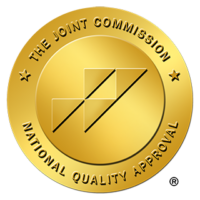A Science-Backed Approach to Healing
Your emotional health shapes your path to recovery. Eye Movement Desensitization and Reprocessing (EMDR) therapy dismantles traumatic memories that keep you trapped in the cycle of substance use. Unlike traditional talk therapy, this specialized approach harnesses your brain’s natural healing abilities through precise bilateral movements. At Engage Wellness’s tranquil Massachusetts center, our trauma-informed clinicians guide you through this transformative process, helping you reclaim your story and build lasting recovery.
What is Eye Movement Desensitization and Reprocessing Therapy?
EMDR therapy is an evidence-based treatment that’s proven effective for treating several conditions.[1] It utilizes bilateral stimulation, which engages both sides of your brain through specific rhythmic movements. During EMDR therapy, this happens when your eyes track back and forth or through alternating taps on your knees or audio tones that shift between your ears. This rhythmic pattern mimics the brain’s natural processing during REM sleep.
This bilateral movement creates fascinating changes in your brain. The stimulation activates your memory networks while calming your limbic system, the emotional center where trauma lives.[2] As your brain processes both sides simultaneously, it weakens the intense emotional connection to traumatic memories.
The process transforms how your brain stores trauma. Rather than experiencing traumatic memories as vivid, present-moment threats, bilateral stimulation helps file them away as past events.[3] This allows you to recall difficult experiences without experiencing the same overwhelming emotional and physical responses that often lead to substance use as a coping mechanism.
Engage Wellness integrates EMDR therapy into your personalized treatment plan when trauma underlies addiction. Our specially trained clinicians create a safe, supportive environment where you can process difficult memories at your own pace. We pair EMDR sessions with other therapeutic modalities to strengthen your recovery foundation.
Each EMDR session targets specific traumatic memories that impact your daily life. Through guided bilateral movements, our clinicians help you reframe these experiences while teaching practical coping skills. The goal remains simple yet profound: to help you find freedom from trauma’s grip and move forward in lasting recovery.
The Core Components of EMDR
EMDR therapy blends five essential therapeutic tools that work together to process trauma: elements of Cognitive-Behavioral Therapy (CBT), psychotherapy, bilateral stimulation, systematic desensitization, and mindfulness across eight distinct treatment phases:[4]

At Engage Wellness, we move through these phases at your pace, ensuring you feel safe and supported. Our clinicians combine EMDR with addiction treatment strategies, addressing both trauma and substance use simultaneously. This dual approach helps break the cycle of using substances to cope with traumatic memories.
The Benefits of EMDR Therapy For Addiction
EMDR therapy transforms how your brain processes traumatic experiences that fuel addiction. Through bilateral stimulation, EMDR-trained therapists help rewire your brain’s response to past trauma while building essential life skills. This evidence-based approach reduces trauma symptoms like flashbacks and anxiety that often drive substance use.
The healing process extends beyond processing traumatic memories. EMDR therapy develops crucial recovery tools: resilience, self-awareness, and positive self-talk. These skills help reshape negative thought patterns while reducing hypervigilance, paranoia, and emotional distress. Clinicians combine EMDR with other modalities and interventions to strengthen your recovery foundation and prevent relapse.
EMDR treatment empowers lasting transformation in addiction recovery. The process builds confidence that you can create a fulfilling life despite past experiences. Our licensed therapists guide this journey, helping you reclaim your personal power while developing healthy coping strategies that support long-term sobriety.
What We Treat
We understand addiction and mental health challenges don’t occur in isolation. Our comprehensive EMDR therapy program treats both substance use disorders and co-occurring mental health conditions, addressing the complex relationship between trauma, mental health, and addiction.
Frequently Asked Questions About EMDR Therapy Near Me
How does EMDR therapy in Massachusetts differ from traditional talk therapy?
EMDR therapy engages your brain’s natural healing process through bilateral stimulation rather than conversation alone. While talk therapy explores past experiences verbally, EMDR helps reprocess traumatic memories directly in your nervous system, often leading to faster relief from trauma symptoms and addiction triggers.
What qualifications should I look for in an EMDR therapist?
Look for clinicians certified by the EMDR International Association (EMDRIA) who have completed specialized training in trauma therapy. Licensed mental health professionals (LCSW, LPC) with EMDR certification combine their expertise in addiction treatment with proven trauma processing techniques.
How many EMDR sessions will I need?
Most people begin experiencing relief within 6 to 12 sessions, though complex trauma or co-occurring disorders may require longer treatment. Your certified EMDR therapist will develop a personalized treatment plan based on your specific traumatic experiences and recovery goals.
Is EMDR therapy in Massachusetts effective for both trauma and addiction?
EMDR therapy addresses trauma stored in the nervous system that often underlies addiction. Research shows EMDR effectively reduces post-traumatic stress disorder, anxiety, and negative thoughts that drive substance use while building self-esteem and healthy coping skills.








